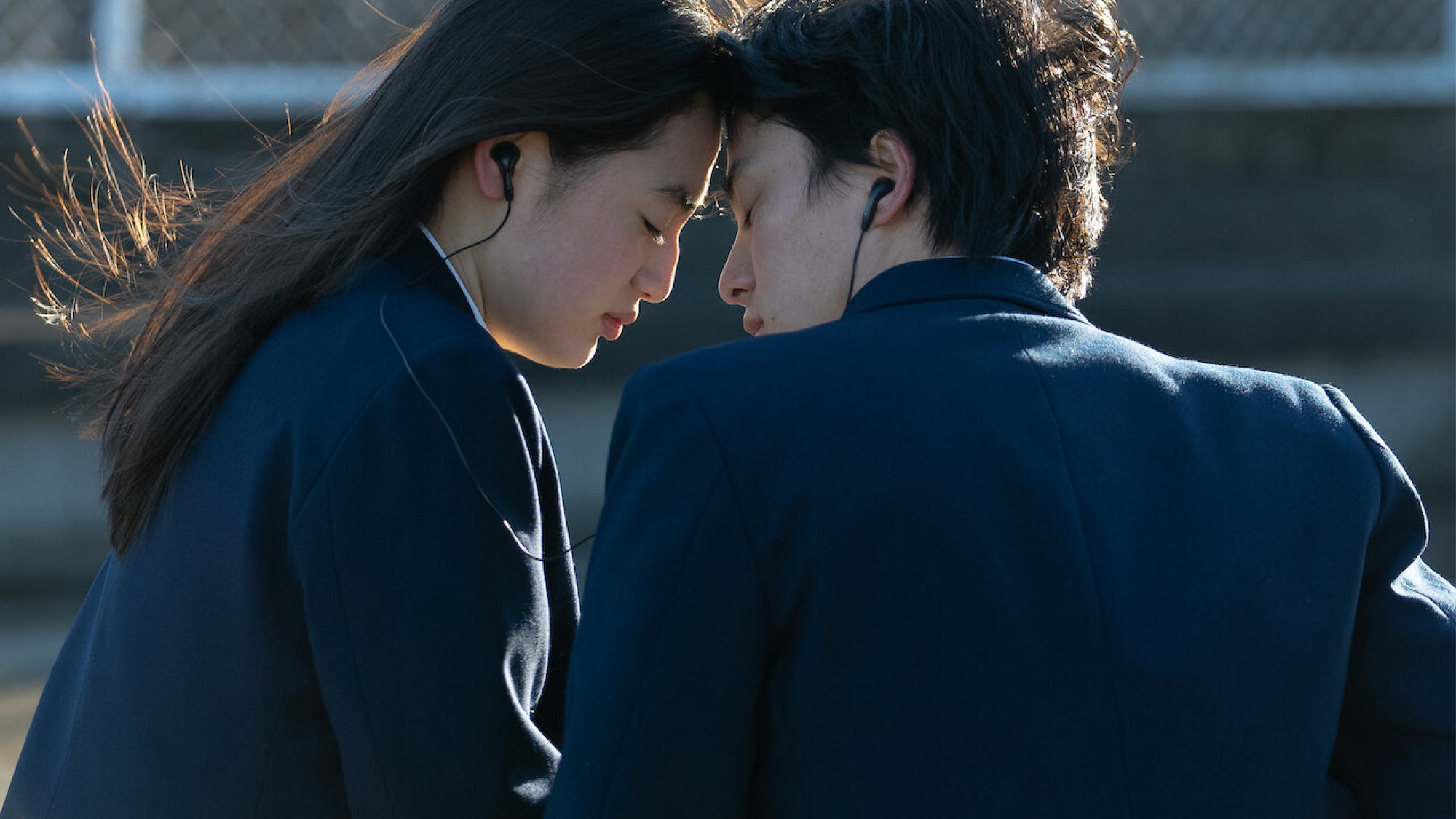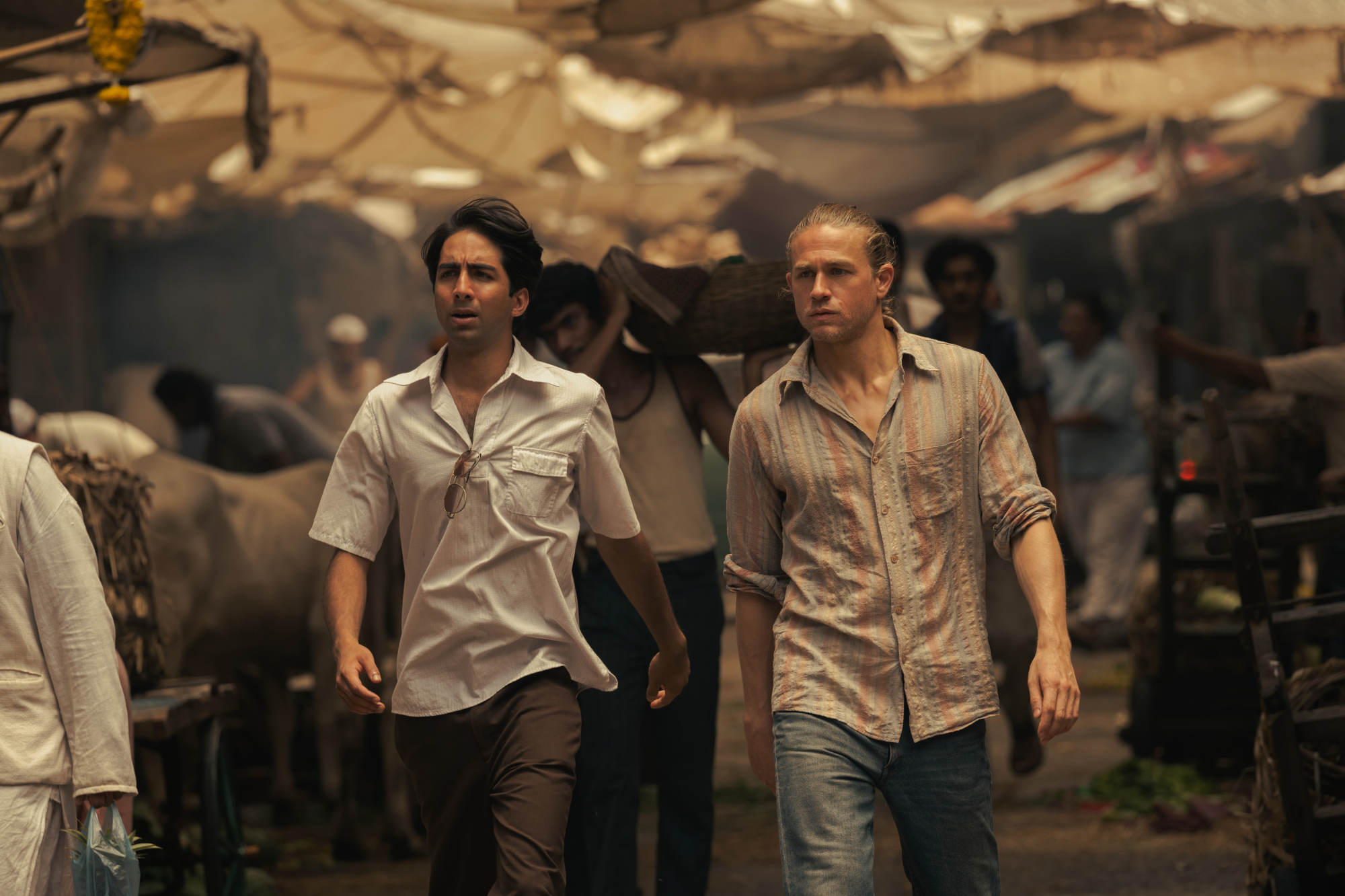
Netflix Japanese series First Love takes romance through the years, and puts it under a slow-burning microscope
- Rikako Yagi and Taisei Kido play school sweethearts in First Love, while Hikari Mitsushima and Takeru Satoh play them as adults
- Meanwhile, Shantaram on AppleTV+ follows Charlie Hunnam’s anti-hero, who escapes from prison in Australia, and hides out in Bombay
Ahhh! Young love: the dreamy promise of soft-focus romance in perpetuity. The dull reality of misplaced passion and withered ambition; the biting disappointment of petrified plans to live together happily ever after.
Such is the perceptive treatment of all these trademark sentiments and more by Japanese director Yuri Kanchiku in First Love (Netflix) – a series inspired by two songs from Japanese-American J-pop queen Hikaru Utada.
Nine slow-burning episodes of enchantment trace the relationship between Sapporo-schooldays sweethearts Yae Noguchi (Rikako Yagi) and Harumichi Namiki (Taisei Kido), who are so enamoured of each other that nothing can put them asunder, ever – nothing but slipping into adulthood and amassing the usual grown-up problems.
The mature Noguchi (Hikari Mitsushima) and Namiki (Takeru Satoh) are comparatively unfulfilled in life, quietly pining for each other and, having lost touch, unable to find the missing pieces to complete their respective existences.

And while they do somehow drift back together, they soon find themselves apart again, as if fate has decided that as a pair, they just aren’t meant to be. (The suspicion even arises that perhaps we’re watching the stories of two different couples, so physically unlike are the stars’ younger and older selves.)
As timelines switch back and forth, crossed wires, missed dates, misunderstood intentions, sabotaged plans and interventions by the gods mean no one could blame the lovers if they decided it was all too much hassle.
A Sliding Doors moment seems to sum up their misfortune, although it’s actually a diverging taxis moment, in which a cab containing one briefly pulls up alongside a cab containing the other, before the roundabout of fickle fate spins them off in different directions again to await another crossing of paths.
The glacial pace of much of the action means First Love seems sometimes to proceed in real time, for which reason it scores 3.5 out of 5 on the Watch-O-Meter. Nevertheless, there is something satisfying in the resolution of a drip-feed story such as this – assuming it all works out in the end. Delayed gratification is a forgotten pleasure in a world moving too fast.

Bombay mix
Before Hindu radicals decided Bombay should be renamed Mumbai, it was a sort of anything goes, Wild West town that was handy when it came to helping fugitives disappear. Perhaps it still is.
Either way, that’s the city depicted at the start of 12-part thriller Shantaram, just concluded on Apple TV+. Lindsay Ford (Charlie Hunnam) is the fake identity of a convict supposedly from New Zealand, who escapes prison in Australia in the interests of avoiding being murdered as an alleged snitch, and of “love, fate and chasing redemption”.

Despite having had a rough deal, and having his heart in the right place, Ford is no wronged innocent and finds Bombay, with its prostitutes, pimps, gangsters, drugs, Bollywood stuntmen and ruthless wheeler-dealers, as well as corrupt politicians and police, “exhilaratingly free” and a city in which to lose oneself.
None of which might seem novel in a series set in early 1980s India, before moving on to other sparsely policed parts of Asia. Nevertheless, although Shantaram might echo previous jaunts through this rocky territory, this is the story of a white man who isn’t necessarily the hero or the saint – ironic, considering the name “Shantaram”, bestowed on Ford, means Man of God’s Peace.
Admittedly, anybody’s peace would be tested when they’re on the run, reluctantly sucked into organised crime, signed up to smuggle guns for freedom fighters (or terrorists) and dazzled by the charms of a dangerously well connected femme fatale (Antonia Desplat).
Ford can hide; but can he run forever?

